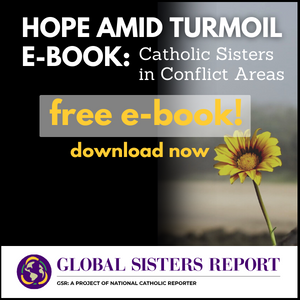For the last two thousand years, the church has fought to defend its teachings against modern advances in science. Scientists, such as Italians Galileo Galilei and Giordano Bruno, were once arrested, persecuted, sometimes even killed for their “heretical” beliefs. No one, not even church officials, can deny that the church has taken missteps.
The church has been criticized for trying to apply its 2,000 years of doctrine to today’s world. Monsignor Tomasz Trafny, the Director of the Vatican's Science and Faith Foundation, recently told CNN, “There was a time when theologians thought they understood everything, but we learned the lesson from history.”
Today, however, the Vatican is striving to reconcile a relationship with modern science by taking a few steps toward scientific advancements. With Pope Francis’ background as a chemical technician, many have high hopes for the future. His inaugural address even stressed the need for us to be stewards of the earth and the natural world.
One way that the church has combined forces with scientists is through an annual conference it is co-hosting on April 11-13 with NeoStem, a bio-pharmaceutical company based in the United States that works with adult stem cell therapy. The Vatican’s Pontifical Council for Culture has been working with NeoStem to promote adult stem cell research since 2011 in order to show its commitment to finding cures for medical problems and to be viewed in a positive light on this subject.
Doctrine regarding sanctity of life from conception to natural death prohibits the Catholic Church from endorsing embryotic stem cell research, which requires a fertilized embryo to be destroyed during the extraction of the cells. Adult stem cells can be extracted without harm.
The annual conference for 2012 was cancelled by the Pontifical Council, according to some anonymous sources, due of the lineup of speakers which included a number who promote embryotic stem cell research. Bryan Cones, former managing editor of U.S. Catholic, covered this topic last year.
Will the church ever see eye to eye with scientists? Probably not. However, one can hope that this is the start to a powerful friendship.









